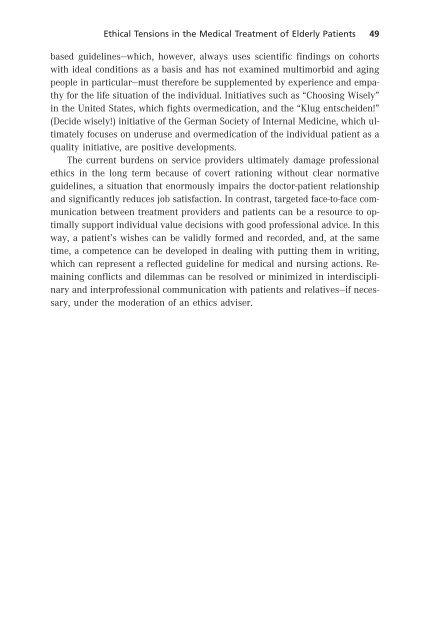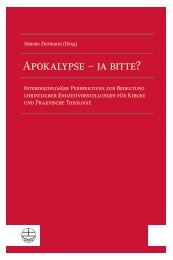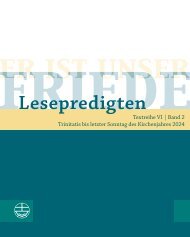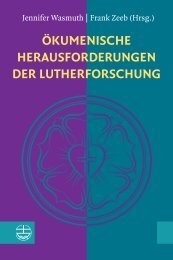Michael Welker | Eva Winkler | John Witte, Jr. | Stephen Pickard (Eds.): The Impact of Health Care (Leseprobe)
Pluralism has become the defining characteristic of many modern societies. Not only a plurality of individual and social claims and activities gain impacts on societal life. A creative pluralism of institutions and their norms profoundly shape our moral commitments and character – notably the family, the market, the media, and systems of law, religion, politics, research, education, health care, and defense. In the theoretical, empirical, and historical contributions to this volume, specialists on medicine, medical ethics, psychology, theology and health care discuss the many challenges that major transformations in their areas of expertise pose to the communication and orientation in late modern pluralistic societies. Contributors come from Germany, the USA and Australia.
Pluralism has become the defining characteristic of many modern societies. Not only a plurality of individual and social claims and activities gain impacts on societal life. A creative pluralism of institutions and their norms profoundly shape our moral commitments and character – notably the family, the market, the media, and systems of law, religion, politics, research, education, health care, and defense.
In the theoretical, empirical, and historical contributions to this volume, specialists on medicine, medical ethics, psychology, theology and health care discuss the many challenges that major transformations in their areas of expertise pose to the communication and orientation in late modern pluralistic societies. Contributors come from Germany, the USA and Australia.
Create successful ePaper yourself
Turn your PDF publications into a flip-book with our unique Google optimized e-Paper software.
Ethical Tensions in the Medical Treatment <strong>of</strong> Elderly Patients 49<br />
based guidelines—which, however, always uses scientific findings on cohorts<br />
with ideal conditions as abasis and has not examined multimorbid and aging<br />
people in particular—must therefore be supplemented byexperience and empathy<br />
for the life situation <strong>of</strong> the individual. Initiatives such as “Choosing Wisely”<br />
in the United States, which fights overmedication, and the “Klug entscheiden!”<br />
(Decide wisely!) initiative <strong>of</strong> the German Society <strong>of</strong> Internal Medicine, which ultimately<br />
focuses on underuse and overmedication <strong>of</strong> the individual patient as a<br />
quality initiative, are positive developments.<br />
<strong>The</strong> current burdens on service providers ultimately damage pr<strong>of</strong>essional<br />
ethics in the long term because <strong>of</strong> covert rationing without clear normative<br />
guidelines, asituation that enormously impairs the doctor-patient relationship<br />
and significantly reduces job satisfaction. In contrast, targeted face-to-face communication<br />
between treatment providers and patients can be aresource to optimally<br />
support individual value decisions with good pr<strong>of</strong>essional advice. In this<br />
way, apatient’s wishes can be validly formed and recorded, and, at the same<br />
time, acompetence can be developed in dealing with putting them in writing,<br />
which can represent areflected guideline for medical and nursing actions. Remaining<br />
conflicts and dilemmas can be resolved or minimized in interdisciplinary<br />
and interpr<strong>of</strong>essional communication with patients and relatives—if necessary,<br />
under the moderation <strong>of</strong> an ethics adviser.
















